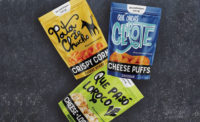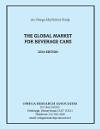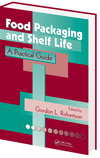Solving the global food crisis, one package at a time
Dow offers a diverse set of packaging solutions that help prevent food waste and increase its accessibility

As the world’s population continues to grow, a staggering 30% of the world’s food – equivalent to 1.3 billion tons - goes to waste each year. The global population is projected to reach 9 billion before 2050 (United Nations) while earth’s arable land devoted to food production is limited. Minimizing food waste can help close the gap between food availability and population growth. The Dow Chemical Company’s (dow.com) Performance Packaging business is working to close that gap with packaging solutions that help reduce food waste across the food supply chain from the farm to the kitchen table.
To increase awareness of this problem and help end world hunger, Dow Performance Packaging is participating in World Food Day on October 16th, which is sponsored by the United Nation’s Food and Agriculture Organization (FAO), through interactive content about food waste and how to create sustainable food systems on its website and social media channels.
“At Dow, we take food security seriously and we recognize that maintaining sustainable food systems is a complex process,” says Diego Donoso, business president, Dow Packaging and Specialty Plastics. “We are committed to creating innovative technologies in packaging and collaborating with industry partners to minimize food waste and ensure that more food reaches more kitchen tables around the globe.”
Packaging is an important part of the food supply chain, as it protects food from damage and harmful elements during the journey from farm to table. Fresh food packaged in protective films can help preserve food longer to extend shelf-life and delay spoilage, allowing more consumers to have access to fresh foods with less of it going to waste.
Innovations in plastic packaging help reduce food waste through enhanced functionality by making packages easier for consumers to open, close and optimize contents. Flexible plastic pouches that are resealable, enable foods to taste just as fresh days after the bag was first opened. Consumers can open up a pouch of soup, pour out the amount they need and store the rest in the refrigerator, whereas before, the leftover contents may have gone to waste. Flexible plastic pouches are also lighter in weight than traditional packaging materials (metal, paper, glass) and take up less space allowing more food to be transferred in one truckload. This leads to reduced carbon emissions throughout the supply chain.
Today’s on-the-go lifestyle is also driving new innovations in packaging. Packaged food that is available in single-serve sizes is ideal for many consumers, because of its portability for today’s on-the-go lifestyles. The convenience of single-serving sizes means that consumers do not have to open an entire package and risk wasting the amount they do not eat. Additionally, as consumers become more health-conscious, pre-portioned snacks take the guesswork out of predicting serving sizes which subsequently helps consumers not waste portions they don’t want.
Looking for a reprint of this article?
From high-res PDFs to custom plaques, order your copy today!







